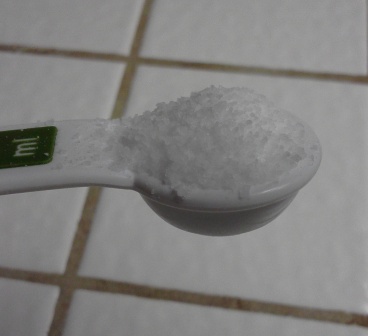Western Medicine Wrong on Salt and Heart Disease
For years, conventional medicine has been proposing that even a little too much salt in the diet can significantly increase the risk of heart disease. Turns out they were wrong. Yes, too much salt can increase heart disease risk – but it has to be nearly triple the amount previously warned about. Worse, too little salt in the diet can be just as bad or worse than too much.
In this article
Salt and heart disease more complicated
Researchers from Canada’s McMaster University have found that both too little salt and too much salt intake increases the risk of heart disease. The large study found, in fact, that the relationship between sodium and heart disease is more complicated than simply too much sodium increases heart disease – as has been communicated to many people.
The researchers analyzed two study groups that totaled 28,880 people between 2001 and 2008. They measured sodium and potassium intake using fasting urine samples.
They compared these results with the incidence of cardiovascular disease, heart attack, strokes and congestive heart failure among the population.
Using a follow-up period of 56 months, the research illustrated that the risk of heart disease did not increase until sodium levels – salt intake – increased to nearly 7 grams per day (7,000 milligrams). This is over three times higher than the American Heart Association’s recommended salt intake of 2.3 grams per day.
Even more surprisingly, low sodium levels – and low intake of salt – also increased the incidence of heart disease. Levels that related to consuming less than 3 grams per day (3,000 milligrams) were associated with higher incidence of heart disease amongst the study population.
Low potassium levels also increase heart disease risk
Furthermore, the researchers found that low levels of potassium also increased the risk of heart disease. Consumption relating to more than 2,500 milligrams of potassium per day was associated with a significantly lower risk of heart disease. And more than 3,000 milligrams of potassium per day decreased the risk of heart disease even further.
This is not the first study that has found that heart disease has less to do with sodium levels as much as it has to do with potassium levels. And the balance between potassium and sodium. A 2009 study from Harvard Medical School found among 2,275 people that sodium levels alone had no significant effect on heart disease, but the sodium-to-potassium ratios had a significant association with heart disease.
The study found that higher ratios of sodium to potassium (higher sodium with lower potassium levels) had the greatest negative effect on blood pressure and heart disease.
This information confirms the need for balanced levels of not only sodium and potassium in the diet, but balanced levels of all the macro minerals and trace elements. Research keeps pointing to the fact that the body needs a balance of minerals, such as that supplied by nature.
Natural salt is good for you
Salt that is derived from nature’s elements, including the sea and salt mines, is not simply sodium chloride. Nature’s salt is a complex combination of over 60 different minerals and trace elements.
However, refined and “purified” salts found in most grocery stores have had most of these other minerals and trace elements stripped away. This leaves sodium chloride levels out of balance from nature’s source.
Fresh organic vegetables can also supply a natural balance of minerals and trace elements.
We shouldn’t overlook the importance of vitamins and minerals. After all, vitamins and minerals can treat ADHD along with other conditions.
REFERENCES:
O’Donnell MJ, Yusuf S, Mente A, Gao P, Mann JF, Teo K, McQueen M, Sleight P, Sharma AM, Dans A, Probstfield J, Schmieder RE. Urinary sodium and potassium excretion and risk of cardiovascular events. JAMA. 2011 Nov 23;306(20):2229-38.
Cook NR, Obarzanek E, Cutler JA, Buring JE, Rexrode KM, Kumanyika SK, Appel LJ, Whelton PK; Trials of Hypertension Prevention Collaborative Research Group. Joint effects of sodium and potassium intake on cardiovascular disease: the Trials of Hypertension Prevention follow-up study. Arch Intern Med. 2009 Jan 12;169(1):32-40.















